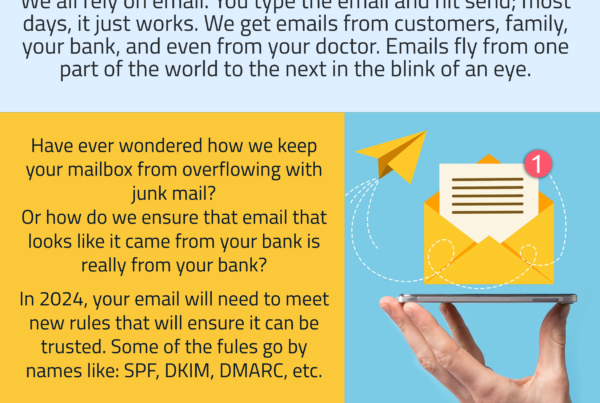Backup Your Cloud Data
Companies have been flocking to Cloud Computing for the past decade. Almost all companies use some type of Cloud Computing, whether it by Microsoft 365, Google, or Zoom. Cloud Computing has become a necessary competitive advantage. Most Cloud Service Provider companies use the Shared Responsibility Model. This generally means that they are responsible for running the computers and software for the Cloud Computing; the customer is responsible for the data. For example, with Microsoft 365, Microsoft will take care of purchasing the computers and network gear, as well as setup and maintain the software and systems to run your email. You as the customer, are responsible for the email, calendar, and contact data that is stored on their servers. This means that you and your IT team are also responsible to backup your cloud data.
Three Reasons to Backup Your Cloud Data:
- Data Loss Prevention
- Compliance
- Business Continuity
Data Loss Prevention
Cloud Computing gives us high availability and reliability. However, data loss can still occur due to technical failures, human errors, or malicious attacks. The customer is responsible for this. Backing up cloud data provides the necessary layer of protection against these types of incidents. Fortunately there several backup solutions that affordably simplify, such as Veeam Backup for Office 365, etc.
Compliance
Many industries have strict data retention and compliance regulations that require businesses to maintain backup copies of their data in Canada. For example, your company may be required to retain records for two years. If a user deletes an email from Microsoft Outlook, Office 365 may only give you 14 days to recover that email. That is not enough time for most regulated industries to realize the data loss and to recover it. Backing up cloud data ensures that these regulations are met.
Business Continuity
In the event of a disaster, such as a natural disaster, cyber attack, or hardware failure, having a backup of cloud data helps ensure business continuity and minimizes downtime. Your Cloud Service Provider may be protected against cyber attacks such as ransomware. However, your users may still be fall victim to spear phishing and cryptolocker attacks. We have all seen the increase phishing attacks with look a like email and web pages. When the cyber criminals get access to an email or Microsoft SharePoint site, they can still ransomware your data. A Cloud backup strategy will help reduce or eliminate this potential disaster.
By backing up your cloud data, your businesses can protect themselves against data loss, ensure compliance with regulations, and maintain business continuity.
If you would like to learn more protecting your business, take a look at our Backup Tips, or book a Free Backup Consultation with us.






